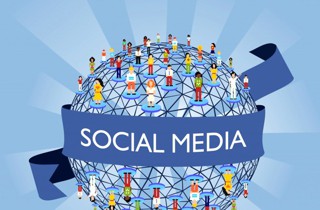
At a recent networking event in Silicon Valley I was struck by how such events can be really great or really bad. On the great side they can be the beginning of interesting friendships. On the bad side they can be shallow, stressful and unsatisfying.
With SXSW just getting started (I will be speaking there on Essentialism) my editor asked me to share a few thoughts on what attendees at any big, high-profile conference should or should not be doing to have a meaningful experience. Here are three ideas for your consideration:
A Fistful of Business Cards (vs. One Genuine Relationship).
The classic behavior at these events is to exchange a lot of business cards. This remains true even though afterwards many of the cards are close to meaningless. They won't remember you; you won't remember them.
Susan Cain, the genius behind the book Quiet, suggests a different rule of thumb for networking events: "One genuine new relationship is worth a fistful of business cards." This essentialist sentiment is one I fully endorse. In fact a friend of mine, Dave Hanley, recently pointed out to me that the sharing of business cards often signals the end of a conversation not the beginning of one.
Looking Over Someone's Shoulder (vs. Mindful Listening).
I once sat next to Bill Reilly at a networking dinner at Apple. We connected easily and have built a great relationship overtime. I was interested to discover how he learned to really listen to who he is speaking to. He found if he concentrated on listening to other people the way he focused when he meditated his interaction immediately became richer. The other person could feel he was listening, almost physically. And when they knew he was listening they formed a bond with him faster. Life almost immediately felt richer and more meaningful. As professor Graham Bodie has empirically noted, listening is the quintessential positive interpersonal communication behavior.
The Fear of Missing Out (vs. the Joy of Missing Out).
As I mentioned in a recent piece, I was once at the World Economic Forum for Latin America in Mexico with an amazing array of speakers, panels and participants. The bad news was I felt pulled to attend everything and meet everyone. When I was involved in one activity it was easy to think, "Oh, I wonder if I should have gone to that session instead!" The (well-known) term for this sensation is "the fear of missing out" (or FOMO). After two days of this, I was feeling some meeting fatigue. I decided to opt out of the rest of the afternoon and head, instead, for the pool.
One look at the actual pool and you might say, "Well that is just a no-brainer of a decision!" But that is really my point: it wasn't obvious in the moment. I had been so consumed with the fear of missing out I had not stopped to consider what Anil Dash has termed, "the joy of missing out" (or JOMO).
To my surprise and delight I was not the only person who had the idea. I was joined by fifteen or so fellow rebels. Each of us looked at each other with a little chagrin. But the serendipity that followed was amazing. With the space to relax and just talk without an agenda or scheduled "content," magical things happened. Deep relationships were formed, spontaneous ideas flowed and one important initiative was launched.
Our lives at work and at home are full of many invitations to attend this event or that meeting. Not only can the number of these invitations feel overwhelming, the fear of missing out can lead us to be unsatisfied with the choices we make as we wonder about the other half are doing. I sat down with the Huffington Post recently to talk about this.
Source: LinkedIn Post / By: Greg McKeown


